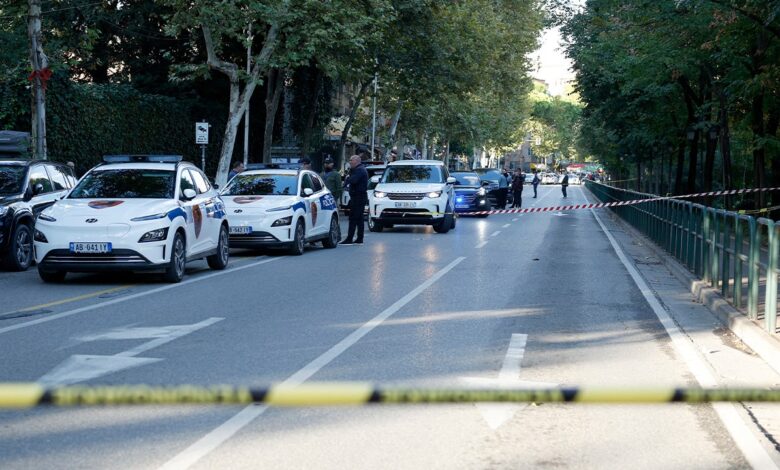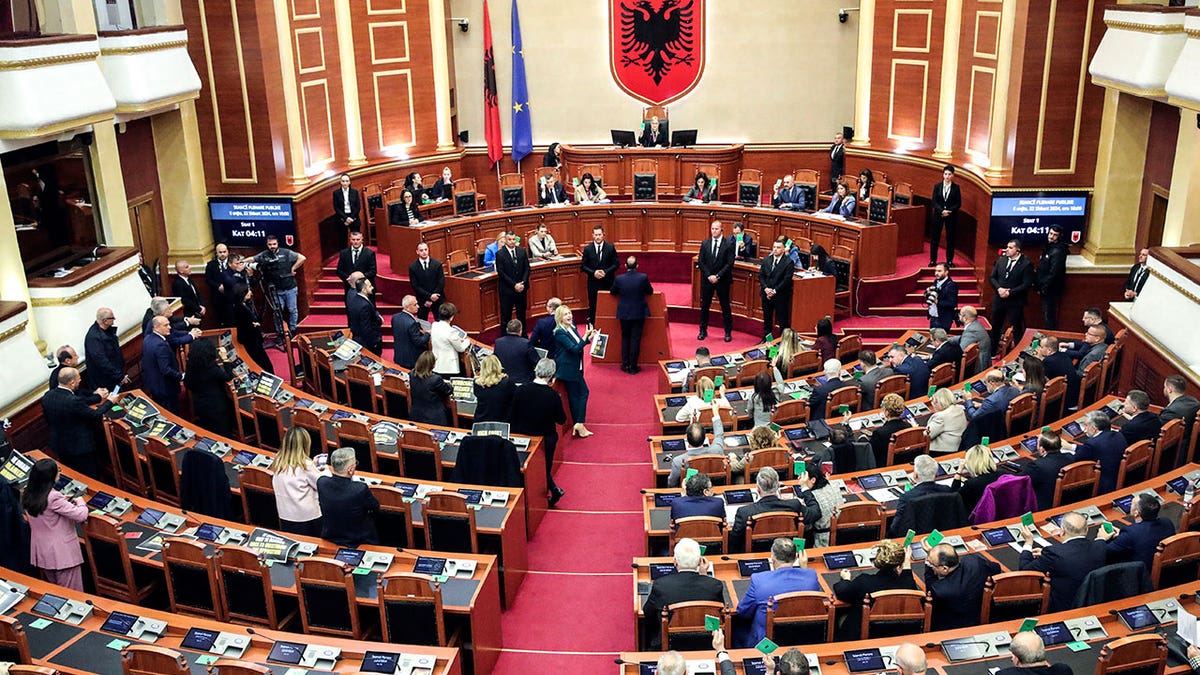Assassination of judge reveals Albania’s judicial crisis and public distrust

NEWYou can now listen to Fox News articles!
On October 6, Albanian appeals court judge Astrit Kalaja was shot dead in the Tirana courtroom where he was overseeing a property dispute case, according to the International Commission of Jurists. Kalaja died from his injuries and two other people were shot. The suspect, aged 30, was arrested.
Kalaja’s assassination quickly became a lightning rod for national discontent with Albania’s justice system.
Former Albanian Ambassador to the United States and United Nations Agim Nesho told Fox News Digital that reforms implemented almost a decade ago by the European Union and the United States were “intended to strengthen the rule of law” but were “transformed into a political instrument, undermining democratic institutions and concentrating power in the hands of the executive.”
SOROS V TRUMP: SOCIALISTS TARGET CONSERVATIVES IN UPCOMING EUROPEAN NATIONAL ELECTIONS

Police secure the perimeter outside the Tirana Court of Appeal after a judge was shot dead, in Tirana, October 6, 2025. A man on trial opened fire in a courtroom in the Albanian capital Tirana, killing appeal court judge Astrit Kalaja, who was presiding over the man’s trial when the man opened fire, police said. (Adnan Beci/AFP via Getty Images)
“As a result,” Nesho said, “public confidence in the justice system has been seriously eroded, with institutional dysfunction reaching a level where some segments of society feel pressured to take justice into their own hands – a dangerous sign of democratic backsliding.”
Opposition Democratic Party leader Sali Berisha told Fox News Digital that Kalaja’s killing was “a heinous act and a wake-up call that should not be ignored.”
MEET RAMADURO: THE PROGRESSIVE EUROPEAN AUTOCRAT TRAINED BY SOROS AND ENEMY OF TRUMPISM
Berisha said the “obvious support that this law has garnered,” including the creation of a now-dormant GoFundMe to support the killer’s legal rights, demonstrates “a protest against a dysfunctional justice system, against a corrupt and politicized justice system.”
Berisha said judicial reforms “left the country without a Constitutional Court and a High Court for more than five years,” creating a “staggering backlog” of around 200,000 cases. He said the judicial staff selection process had turned into “a witch hunt against magistrates perceived as independent or potentially right-wing.” According to Berisha, this led to “the militarization of the judiciary against the opposition.”

Democratic Party lawmakers, left, watch their colleagues from the ruling Socialist Party vote in Tirana, Albania, February 22, 2024. (Armando Babani/AP Photo)
A 2020 report on U.S. aid to Albania describes U.S. and European efforts to “restore the integrity of the Albanian justice system.” The report said USAID helped the High Court create a process to handle 72 percent of its 35,000 backlogs. II also declared that 125 of the 286 judges and prosecutors subject to vetting procedures had “been dismissed for unexplained wealth, ties to organized crime, or incompetence,” while 50 judges chose to resign rather than go through a vetting procedure.
FORMER ALBANIAN PRESIDENT WARNS BIDEN THAT RUSSIA IS SEEKING TO “UNDERMINE EUROPEAN VALUES AND FOUNDATIONS” IN THE REGION
Berisha said that as a result of the reforms, it now takes about 15 to 20 years to resolve legal disputes. “Justice delayed is justice denied,” Berisha said.
Lawyer Besnik Muçi, a former prosecutor and judge at the Constitutional Court of Albania, told Fox News Digital that the judicial reforms aimed “to establish a credible, fair, independent, professional, service-oriented, open, accountable and efficient judicial system.” He said the Albanian justice system “failed in almost all” parameters.
Muçi said the court backlog stands at around 150,000 cases. He also noted that the closure of five courts of appeal and some district courts has “almost blocked citizens’ access to justice.” He also explained that most judicial buildings “do not meet… the necessary security conditions and standards.”
“Citizens don’t believe in the justice system,” Muçi said.

Albanian President Ilir Meta holds an American flag as he delivers a speech during a rally in Tirana, March 2, 2020. Thousands of Albanians rallied on March 2, 2020 against the country’s left-wing government and Prime Minister Edi Rama, responding to a call from the president who accuses him of violating the constitution. (Photo by Gent Shkullaku/AFP via Getty Images)
After Kalaja’s murder, the Korça Bar Association and the National Bar Association of Albania boycotted court proceedings on October 9 and 10. The director of the Korça Bar Association, Nevzat Tarelli, said: Albanian news channel CNA that Kalaja’s murder highlighted the need to increase security and confidence in judicial personnel. He also said that “people who expect timely justice, if they do not receive it, no longer have confidence in justice.”
Engjëll Agaçi, secretary general of the Albanian Council of Ministers, did not respond to Fox News Digital’s questions about national dissatisfaction with the justice system or the extent of Albania’s court backlog.
CLICK HERE TO GET THE FOX NEWS APP
A State Department spokesperson declined to answer questions about the success of U.S.-backed judicial reform efforts in Albania or to address issues highlighted by Kalaja’s assassination.
“We extend our deepest condolences to the victims of this attack and their families and strongly condemn the use of violence against judges and prosecutors,” the spokesperson said.



